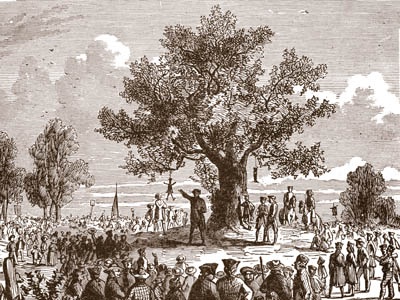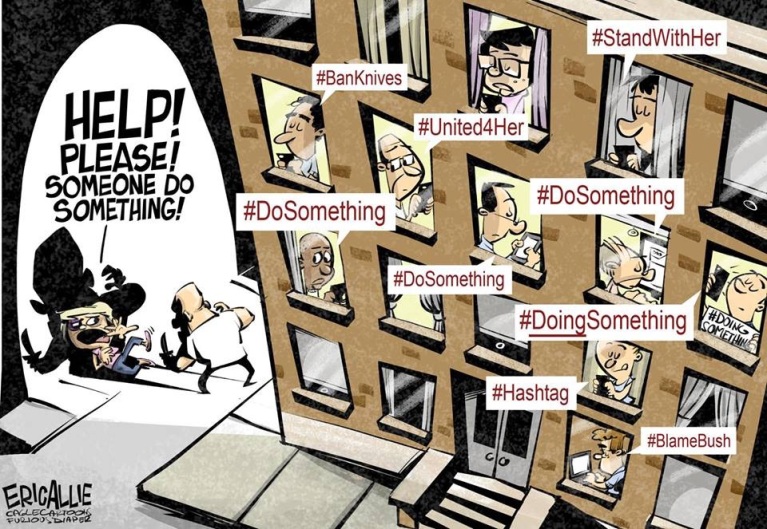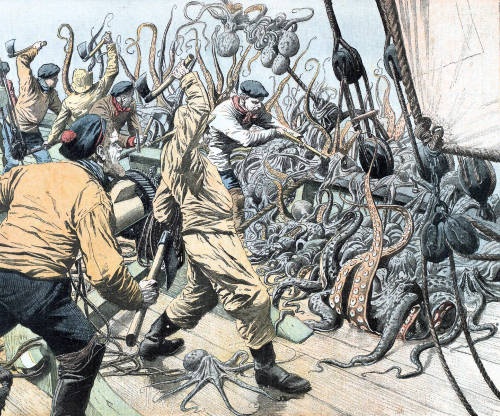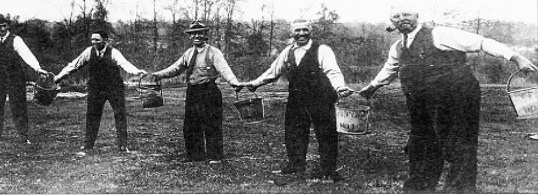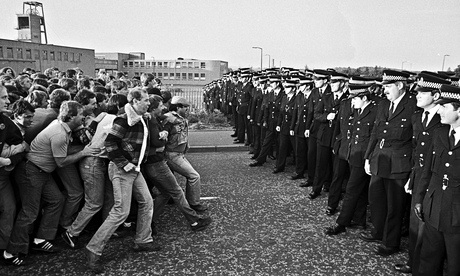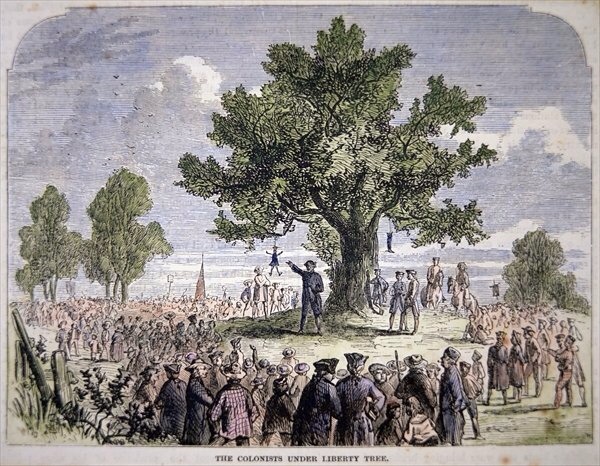“There are some that only employ words for the purpose of disguising their thoughts.”
– Voltaire
Ever wonder why politicians do a lot of talking but seem to actually say very little? Have you noticed that you automatically like a good speaker? Have you ever been motivated to clap enthusiastically after a particularly moving speech?
How about listening to a speech from a pundit you already knew you didn’t agree with, but after their delivery was done, you couldn’t put your finger on any single phrase or utterance that seemed unreasonable?
That happened to me the first time I ever listened to an entire Lindsey Graham speech from start to finish, live, and in person. I knew there was no policy with which I could agree nor a shared opinion with the man, but for some strange reason, his speech seemed, well, reasonable.
Two years later, I find myself at the SC GOP convention listening to a whole lot of illogical men and women giving reasonable (but terribly boring and not well constructed) speeches. Why do I think the speakers are illogical? One man professes to be a devout Christian who wants to bomb a Middle East country “back to the 7th century” and acknowledges that a transgender person is a woman (just as long as that person feels that way). Putting aside all opinion and political correctness, these statements seem illogical. Peaceful, loving Christians wouldn’t advocate genocide and a man that feels he is a woman is still a man. (For that matter, a surgically and chemically altered womanly man is still a man, isn’t he, er, I mean she? I’m just not sure.) But the crowd smiles and goes along with it, clapping and nodding their heads in agreement with the speaker and to each other.
Also at this convention, another politician (Lindsey, again) urges non-supportive Republican voters to find common ground with him and meet somewhere in the middle, immediately adding, “I’m still gonna be me, I’m still gonna be Lindsey!” to enthusiastic applause. This is illogical if he means he isn’t going to compromise. But perhaps he meant he wasn’t going to transgender. Again, I’m just not sure.
How do they do it? What magic do they employ to get people to agree with illogical conclusions that sound reasonable, get voters to protect their incumbency over and over again despite clear political disparities or at least get them not to complain too loudly?

I began exploration into this matter two years ago after listening to that “reasonable” Graham speech. Here’s what I found out: all rhetoric employs one or more of three elements. The three elements are logos, or logic; ethos, or trust; and pathos, or emotion.
Very simply, logos can be described as, “I understand this person, so I believe him”, ethos as, “I don’t understand what this person I trust is saying, but since I trust him, I will agree with them”, and pathos as, “I don’t understand this person, but they move me, so I agree with them.”
Lindsey and other politicians use these three elements effectively. But Lindsey does two other things rather commonly. One of them is an old Dale Carnegie technique that Dale called Principle Five in Part Three of his book, How to Win Friends and Influence People, or more simply, “get the other person saying,“Yes, yes” immediately.”
The book has four parts with over thirty principles. However, I have seen Lindsey use only one of them. So, it appears Lindsey is a one trick pony with regard to Dale Carnegie, at least in his speech making.
The “yes, yes” principle, requires the audience to answer affirmatively to a few softball questions before moving into more challenging issues. This psychologically primes the listener to be agreeable to the speaker when the harder facts follow. A speaker applying the “yes, yes” principle is also employing the use of the element of ethos. In other words, by getting a listener to say, “yes, yes,” they are creating trust. (“I’ve said “yes” to this person at least twice before, so maybe I must be able to trust this person, right?”). To be effective, the speaker needs to be sure that the first two questions are very likely to elicit an answer in the affirmative. A good example might be, “We all want to breathe fresh air, right?” or, “We don’t want to be unsafe, do we?” Even in contentious or stressful situations, one can easily get the other party to say “yes.” One might say, “We both want a solution to this problem, don’t we?” or, “Can we talk about this?”
But even so, Lindsey is a little sloppier in application of the “yes, yes” principle because he sometimes asks his audience questions that actually have a chance of a negative reaction-something Dale just would not do. I have seen Lindsey ask his audience if they like to play golf or if they agree that we are at war with the Taliban, for example. (Not everyone likes to golf and Congress has yet to declare war.) It’s hard to know if this risk-taking, yes-getting questioning is intentional or instead results from a poor application of the technique. But a very good example of the “yes, yes” principle is demonstrated by Lindsey, when he asked NRA members if they had a favorite gun. (I doubt anyone at the NRA convention said, “no.”) And another time when facing a difficult crowd at a town-hall style meeting, he pleadingly asked, “can we agree on this?” Some people might have still answered negatively, but at least you could see that Lindsey was trying!
But, even though its obvious that Graham needs some brushing up on his Dale Carnegie, he does offer an interesting and effective variation on the “yes, yes” principle. He often asks for a show of hands of those in the audience that would answer “yes” to his questions. In doing so, he is utilizing ethos, but this time, it is trust in your peers that he garners upon the listener. It is “peer pressure” on those inclined not to say “yes” while the rest of the audience does so. Perhaps this is how he is able to ask those not so guaranteed “yes” getting questions. Is he doing this on purpose? I think so.
Lindsey is also very good at applying a second rhetorical technique called an “enthymeme.”
Aristotle best describes this rhetorical technique using the terms syllogism (a three part grammatical proof, of sorts), informal syllogism (omitting one of the three parts) and enthymeme (a rhetorical syllogism used in orations.) Aristotle, and politicians who use enthymemes for that matter, are employing the element of logos when they do so. They are compelling the listener to believe what they are saying is logical, even when it isn’t.
Here is an example of a logical syllogism, from Wikipedia:
“All humans are mortal. (major premise – assumed)
Socrates is human. (minor premise – stated)
Therefore, Socrates is mortal. (conclusion – stated)”
By dropping the major premise, the derived informal syllogism would then be:
“Socrates is mortal because he’s human.”
Lindsey knows that native South Carolinians are proud of their heritage and they tend to trust each other more than those from out-of-state. Here is an actual informal syllogism that Lindsey stated in the last primary. In effect, he wrote:
“I was born in South Carolina, therefore I am a conservative.”
Fellow native South Carolinians no doubt swelled with pride upon reading this and as a result felt an involuntary emotional bond to Lindsey at the same time. In this way, Lindsey was utilizing the element of pathos, but also because of the trust South Carolinians automatically grant each other, he was simultaneously utilizing the element of ethos. And, for the hat trick, Lindsey was also using logos, because his statement was in enthymeme form. Not bad, Lindsey! Not bad, at all. The most likely result of those South Carolinians reading this statement, especially with conservatives, was to agree with Lindsey that he was conservative and ignore the logic that some native South Carolinians are actually liberal.
(Lindsey is actually a good example of one of those, contrary to his enthymeme.)
Politicians will often intentionally or unintentionally misstate a premise but follow a logical progression from the minor premise to the conclusion so it creates the illusion of a logical progression. Hence, debaters who want to avoid falling into that rhetorical trap will counter, “I don’t agree with your premise.”
Lindsey’s enthymeme, “I was born in South Carolina, therefore I am a conservative,” in formal syllogistic form would read:
“All South Carolinians are conservative,I was born in South Carolina, therefore I am a conservative.”
By dropping the illogical major premise and retreating to the informal syllogism (an enthymeme) Lindsey avoids causing dissonance in the ear of the listener.
Time and time again in his speeches, Lindsey Graham employs both enthymemes (a deceptive form of logos), the “yes, yes” principle (a form of ethos) and even pathos, especially the pathos of fear.
For example, Lindsey has stated that a nuclear bomb will be delivered in the belly of a ship to a major port in the U.S.; that the global economy would collapse if banks were not given a bailout of tax payer money; that ISIS would kill “every Christian, and Jew, and Vegetarian” in their way; that 20 million people would swim across the river to have their baby here….and the fear-mongering continues, unfortunately.
Liberty candidates rarely use ethos and pathos in their oral communications choosing instead to remain in their comfort zone and focus almost solely on logos. This might be a mistake when a recent study suggested that the attention span of the average American is just four seconds. It is just not possible to explain any concept logically to anyone in this amount of time. But with ethos and pathos, four second communication is very possible. Non-Liberty candidates achieve this rapid communication using the tools Liberty candidates loathe. If Liberty candidates are to compete successfully, they will need to study their adversaries and learn how they can do it too. The good news is our adversaries do not do it very well and that we can do it better!
We need to learn how to use, practice and employ all of these tools- and we need to do it quickly!
And it wouldn’t hurt to also learn a little more Dale Carnegie while we’re at it!
editors note: more on this topic to follow!
